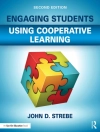The past decade has witnessed a resurgence of interest in Marxism both within and without the academy. Marxian frameworks, concepts and categories continue to be narratively relevant to the features and events of contemporary capitalism. Most crucially, an attention to shifting cultural conditions has lead contemporary researchers to re-confront some classical and essential Marxist concepts, as well as elaborating new critical frameworks for the analysis of capitalism today.
The SAGE Handbook of Marxism showcases this cutting-edge of today’s Marxism. It advances the debate with essays that rigorously map and renew the concepts that have provided the groundwork and main currents for Marxist theory, and showcases interventions that set the agenda for Marxist research in the 21st century. A rigorous and challenging collection of scholarship, this book contains a stunning range of contributions from contemporary academics, writers and theorists from around the world and across disciplines, invaluable to scholars and graduate students alike.
Part 1: Reworking the critique of political economy
Part 2: Forms of domination, subjects of struggle
Part 3: Political perspectives
Part 4: Philosophical dimensions
Part 5: Land and existence
Part 6: Domains
Part 7: Inquiries and debates
विषयसूची
Volume 1
Editors′ Introduction – Sara R. Farris, Beverley Skeggs, Alberto Toscano, & Svenja Bromberg
Part 1: Reworking the Critique of Political Economy
Chapter 1: Merchant Capitalism – Jairus Banaji
Chapter 2: Mode of Production – John Haldon
Chapter 3: Social Reproduction Feminisms – Sue Ferguson, Tithi Bhattacharya, & Sara R. Farris
Chapter 4: Rent – Stefano Dughera & Carlo Vercellone
Chapter 5: Value – Tommaso Redolfi Riva
Chapter 6: Money and Finance – Jim Kincaid
Chapter 7: Labour – Guido Starosta
Chapter 8: Automation – Jason E. Smith
Chapter 9: Methods – Patrick Murray
Chapter 10: The Transformation Problem – Riccardo Bellofiore & Andrea Coveri
Part 2: Forms of Domination, Subjects of Struggle
Chapter 11: Class – Beverley Skeggs
Chapter 12: Punishment – Alessandro de Giorgi
Chapter 13: Race – Brenna Bhandar
Chapter 14: Slavery and Capitalism – Leonardo Marques
Chapter 15: Gender – Sara R. Farris
Chapter 16: Servants – Laura Schwartz
Part 3: Political Perspectives
Chapter 17: Politics – Panagiotis Sotiris
Chapter 18: Revolution – Neil Davidson
Chapter 19: The State – Heide Gerstenberger
Chapter 20: Nationalism and the National Question – Gavin Walker
Chapter 21: Crisis – Ken C. Kawashima
Chapter 22: Communism – Alberto Toscano
Chapter 23: Imperialism – Salar Mohandesi
Part 4: Philosophical Dimensions
Chapter 24: Totality – Chris O′Kane
Chapter 25: Dialectics – Harrison Fluss
Chapter 26: Time – Massimiliano Tomba
Chapter 27: Space – Kanishka Goonewardena
Chapter 28: Alienation – Amy E. Wendling
Chapter 29: Praxis – Miguel Candioti
Chapter 30: Fetishism – Anselm Jappe
Chapter 31: Ideology-Critique and Ideology-Theory – Jan Rehmann
Chapter 32: Real Abstraction – Elena Louisa Lange
Chapter 33: Subsumption – Andrés Saenz de Sicilia
Volume 2
Part 5: Land and Existence
Chapter 34: Primitive Accumulation, Globalisation and Social Reproduction – Silvia Federici
Chapter 35: The Commons – Massimo De Angelis
Chapter 36: Extractivism – Verónica Gago
Chapter 37: Agriculture – Kohei Saito
Chapter 38: Energy and Value – George Caffentzis
Chapter 39: Climate Change – Matt Huber
Part 6: Domains
Chapter 40: Anthropology and Marxism: An Ethnography of Class and Identity – Erica Lagalisse
Chapter 41: Art – Gail Day, Steve Edwards, & Marina Vishmidt
Chapter 42: Architecture – Luisa Lorenza Corna
Chapter 43: Culture – Jeremy Gilbert
Chapter 44: Literary Criticism – Brent Ryan Bellamy
Chapter 45: Poetics – Daniel Hartley
Chapter 46: Communication – Nicholas Thoburn
Chapter 47: International Relations – Maïa Pal
Chapter 48: Law – Robert Knox
Chapter 49: Management – Gerard Hanlon
Chapter 50: The End of Philosophy – Roberto Mozzachiodi
Chapter 51: Technoscience – Les Levidow & Luigi Pellizzoni
Chapter 52: Postcolonial Studies – Jamila M.H. Mascat
Chapter 53: Psychoanalysis – Samo Tomšic
Chapter 54: Queer Studies – Peter Drucker
Chapter 55: Sociology and Marxism in the US – David Fasenfest & Graham Cassano
Chapter 56: The University – Roderick A. Ferguson
Volume 3
Part 7: Inquiries and Debates
Chapter 57: Intersectionality – Ashley Bohrer
Chapter 58: Black Marxism – Asad Haider
Chapter 59: Digitality and Racial Capitalism – Jonathan Beller
Chapter 60: International Development – Kalpana Wilson
Chapter 61: Advertising and Race – Anandi Ramamurthy
Chapter 62: Dependency Theory and Indigenous Politics – Andrew Curley
Chapter 63: The Primitive – Miri Davidson
Chapter 64: Social Movements – Jeffrey R. Webber
Chapter 65: Riot – Joshua Clover
Chapter 66: Postsecularism and the Critique of Religion – Gregor Mc Lennan
Chapter 67: Utopia – Chiara Giorgi
Chapter 68: Affect – Emma Dowling
Chapter 69: The Body – Søren Mau
Chapter 70: Animals – Oxana Timofeeva
Chapter 71: Desire – Hannah Proctor
Chapter 72: Filming Capital – Pietro Bianchi
Chapter 73: Horror Film – Johanna Isaacson & Annie Mc Clanahan
Chapter 74: Three Debates in Marxist Feminism – Cinzia Arruzza
Chapter 75: Triple Exploitation, Social Reproduction and the Agrarian Question in Japan – Wendy Matsumura
Chapter 76: Prostitution and Sex Work – Katie Cruz & Kate Hardy
Chapter 77: Work – Jamie Woodcock
Chapter 78: Domestic Labour and the Production of Labour-Power – Rohini Hensman
Chapter 79: Logistics – Charmaine Chua
Chapter 80: Labour Struggles in Logistics – Jeremy Anderson
Chapter 81: Welfare – Tine Haubner
Chapter 82: The Urban – Ståle Holgersen
Chapter 83: Cognitive Capitalism – David Harvie & Ben Trott
Chapter 84: Bio-Cognitive Capitalism – Andrea Fumagalli
Chapter 85: Intellectual Property – Paul Rekret & Krystian Szadkowski
Chapter 86: Deportation – Nicholas De Genova
Chapter 87: Borders – Sandro Mezzadra & Brett Neilson
लेखक के बारे में
Svenja Bromberg is a Lecturer in the Department of Sociology at Goldsmiths, University of London. Her research and teaching are in continental philosophy and social theory with a focus on issues of emancipation, radical democracy, and materialist philosophies. She completed her Ph D “Thinking ‘Emancipation’ after Marx – A Conceptual Analysis of Emancipation between Citizenship and Revolution in Marx and Balibar’ in 2016. Svenja is a co-editor of Eurotrash (published 2016 at Merve Verlag, Berlin together with Birthe Mühlhoff and Danilo Scholz) and a member on the editorial board of the journal Historical Materialism. She recently published ′Marx, an ‘Antiphilosopher’? Or Badiou’s Philosophical Politics of Demarcation′ in: Völker, J. (ed) (2019), Badiou and the German Tradition of Philosophy, London: Bloomsbury Academic.












